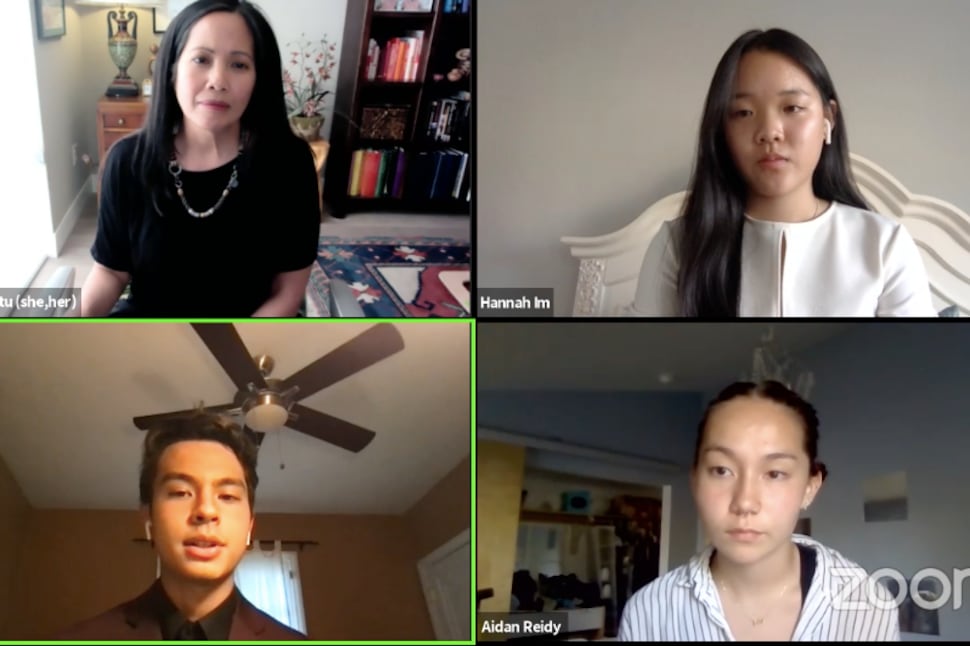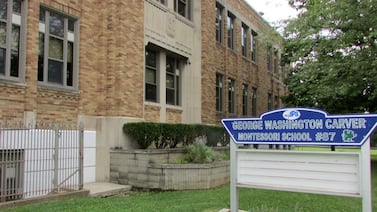After a year in which Asian Americans and Pacific Islanders experienced violent hate crimes during the coronavirus pandemic, students and parents in two Denver metro area school districts are calling for schools to better support AAPI students.
Among their requests are more mental health services for AAPI students, more assistance for AAPI student alliances on campus, and the inclusion of more AAPI history in the curriculum. Colorado and the West have a rich Asian American history that too often isn’t told.
“The AAPI community has felt very invisible for a long time,” said Kai Vong, a graduating senior at Denver’s East High School who is Chinese American.
As part of a nationwide reckoning with racism sparked by high-profile cases of police brutality against Black men and women, schools have been grappling with how to teach about race. But it wasn’t until a mass shooting of Asian women in the Atlanta area in March that the rise in anti-Asian hate became part of the national conversation in a significant way.
In the wake of the shooting, two Colorado mothers began pushing for change in their respective school districts. In Denver Public Schools, former school board member Rachele Espiritu sent a letter to current board members advocating for the inclusion of more Asian American, Native Hawaiian, and Pacific Islander history in the curriculum.
Though the school board passed a resolution in October pledging to diversify the curriculum, AAPI history was left out, Espiritu said. Only Black, Indigenous, and Latino history were explicitly named in the district’s Know Justice, Know Peace resolution.
“We ask the board to right this wrong by amending the resolution to include the only other marginalized racial group not mentioned,” Espiritu told the board.
In the neighboring Cherry Creek School District, parent Colleen Chan formed an AAPI parent task force to advocate for changes to the curriculum there. The group testified before the school board, which led to a meeting with top district administrators.
“Asian American stories are left out in education, in society, and we can’t separate that from the violence happening right now across the country,” Chan said.
Both districts have promised to make curricular changes, and spokespeople said the work is already underway. Carrie Olson, president of the Denver school board, said that Denver’s resolution was meant to be inclusive of all communities and that the board will “amend the existing resolution to make clear our intention in honoring AAPI history.”
“I do look forward to working with them and learning more about, ‘Where are the holes and the pieces the board can fill in?’” Olson said.
Denver Public Schools already has an Asian Education Advisory Council that advocates for the needs of Asian American students. Chairperson Priscilla Shaw, a middle school music teacher, said she is supportive of this latest push for more recognition. She has helped lead two district training sessions in the past year on disrupting xenophobia and elevating Asian voices.
At a recent school board meeting, three Denver students who graduated this month testified along with Espiritu. They said they learned very little AAPI history in school.
Aidan Reidy, who attended North High School, said she learned about Denver’s historic Chinatown, located a century and a half ago in what is now lower downtown, from a Buzzfeed video. In 1880, a white mob attacked the community, killing one man, brutally beating others, and burning businesses.
Hannah Im, who attended DSST Montview High School, said Asian history was taught in her sophomore world history class through a white Eurocentric lens. “We did talk about Asian countries but in the way they were colonized by European countries,” Im said.
The students said they weren’t surprised AAPI history was left out of Denver’s resolution. Vong, from East High School, said he remembers “seeing we weren’t included and being like, ‘Of course.’ After 12 years in the school system, you adjust to being pushed aside.”
William Wei, a University of Colorado Boulder professor and author of “Asians in Colorado: A History of Persecution and Perseverance in the Centennial State,” wasn’t surprised either.
“Whenever they talk about people of color in the United States, we are often overlooked if not out-and-out excluded,” said Wei, who recently served a one-year term as Colorado’s state historian. “We bear the burden of being perpetual foreigners in our own country.”
Wei said Colorado lessons about the economic development of the country should include how Chinese immigrant workers built the western half of the transcontinental railroad, helping to unify the country economically, socially, and even politically.
Students should be taught about both the cultural contributions of Asian immigrants and Asian Americans, Wei said, and about what he called the country’s dark chapters. That includes the incarceration of Japanese Americans during World War II, including at a concentration camp in southeast Colorado known as Amache.
An exhibit about Amache at the History Colorado Center was what graduating senior Reidy called “the first piece of representation” she saw.
“I’m not even Japanese, but it was Asian history,” said Reidy, who is biracial and Taiwanese.
But Reidy and others said support for AAPI students needs to go beyond a more inclusive curriculum. Reidy, Im, and Vong each founded an Asian American Pacific Islander student alliance at their respective high schools because none existed when they were freshmen. Im, who is Korean American, said she wants the district to help more schools start AAPI student alliances and help the alliances that already exist improve and grow.
AAPI students also need more mental health support, the students said. Reidy saw a stark difference in her school’s response to the Atlanta shootings and to a mass shooting that happened in the Colorado city of Boulder the following week.
“After the Atlanta shooting, AAPI students and staff were expected to carry on as if nothing had happened,” she told the school board. “After the shooting in Boulder that happened a week later, I was told that it was OK to take the day off and grieve in my classes.”
Reidy added, “We are not supported unless we are the ones reaching out and advocating for ourselves, which is exhausting in so many ways.”







